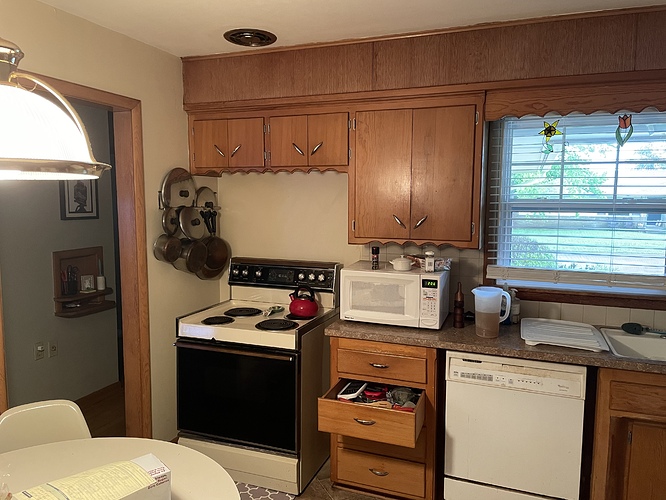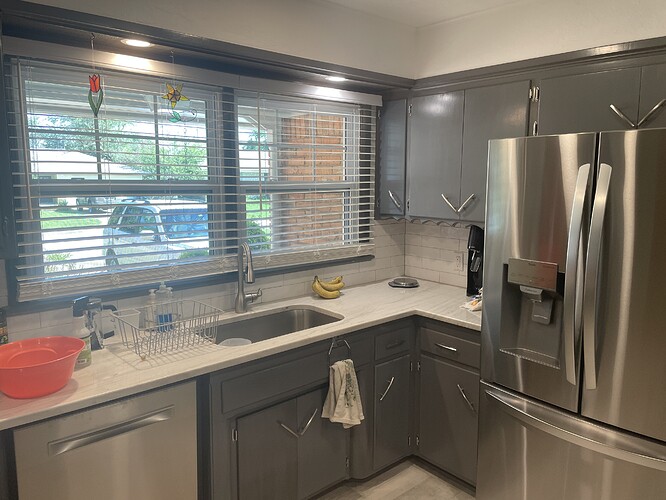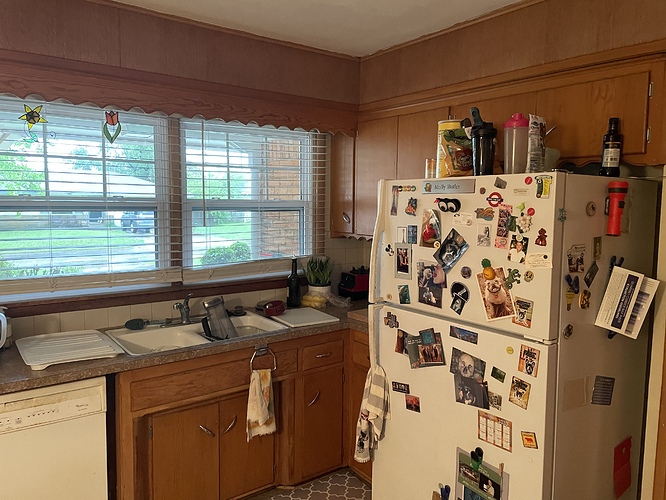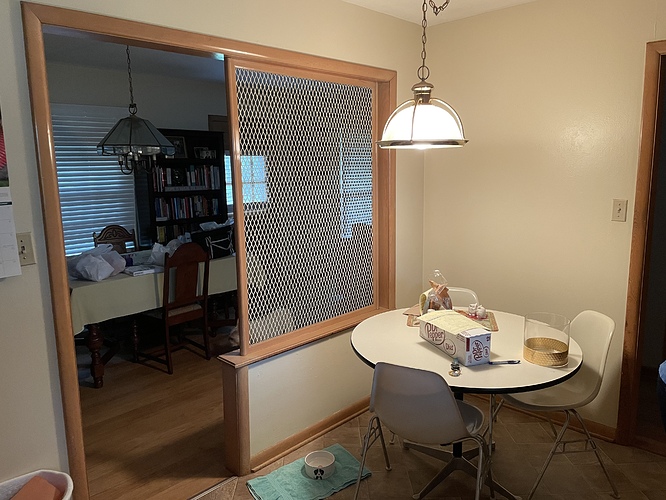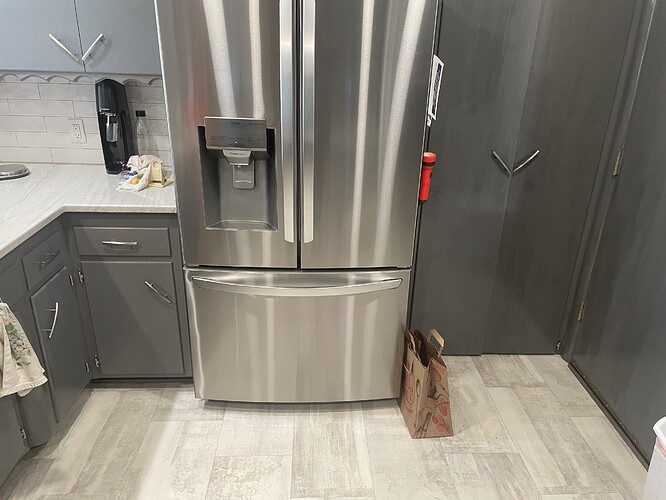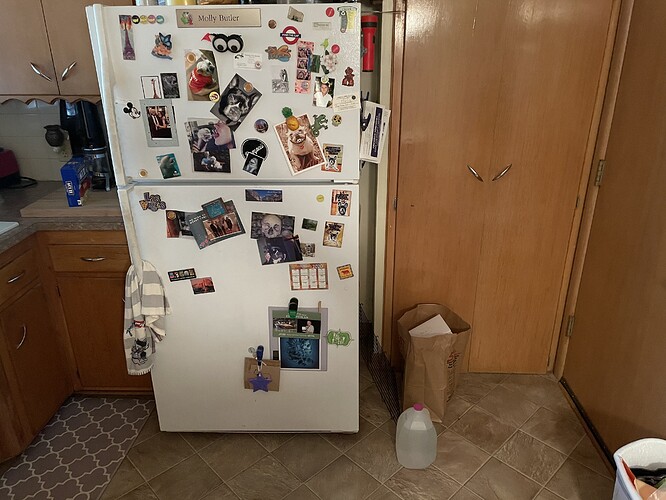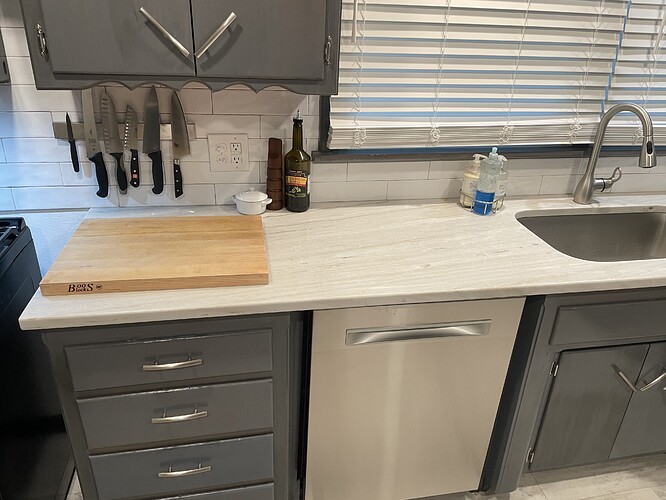did you hear a click from out of nowhere? err
today peeled back the outer shell on a commercial water heater at a Target to source the failure
Yup you got yourself a bad water heater here.
I don’t know anything about home improvement really, please be gentle.
The fan above my stove has kind of suddenly gotten much louder. I’m assuming this is some kind of minor issue with dirt of something that can be dealt with but I don’t know where to start. Is this something I need a technician for or is this something where some properly applied oil in the fan will fix it?
When I lived in apartment coops in school I had a job on maintenance. Pretty much all of that was replacing the ballast on fluorescent lights or fixing fans above stoves. Usually I cleaned them (probably oil’d/wd40’d). I don’t recall how much taking apart that entailed. I mostly recall it just as being greasy and gross - but then I was definitely more squeamish about such things back then.
Do any of you have home battery storage or a solar+batteries kind of thing? And if so, does it actually work like you’d think it should? Apparently there’s a tax credit where I am that almost covers the cost of solar panels and installation, but I don’t really see the point of panels without the ability to store and use the energy 24 hours a day.
The batteries do work. The tax credit covers 26% of the solar and installation. The point of solar without batteries is you still generate less expensive, less polluting energy and you essentially use the grid as a free battery getting credit when you produce more than you use and getting the energy back when you don’t.
Gonna rant about batteries.
First, they are great. For some people for some reasons they even make sense financially. Other people have legit non-financial reasons to install them. But, it’s like when I first started doing solar. Back then you had to spend like an hour explaining solar and how it paid off and everything from incentives to impact on resale value and on and on. Grid-tied solar has gotten to the point (around here anyway) that most of the time it’s just how much do you need and how much does it cost. Sometimes how long until it pays off. Batteries are basically impossible to analyze like that. No one knows how much energy they want/need for back-up. If they are really off-grid (no one I interact with is) then it is knowable, but insanely complicated and no one has enough data to figure it out. In the end, most people don’t do it, and the few who do have to understand that it’s still a luxury. (though I’m sure many salespeople make it seem otherwise)
I know this will all become more simple in the coming years, and probably some regulations will make it a much more viable decision (feed-in-tariff paying market rates would be nice), but at this point I dread people asking about batteries.
(I am not in any way naturally a salesperson)
I agree with everything microbet says (he’s given me a bunch of advice about solar–I’m planning on doing an installation on a new garage, sans battery backup). I just want to underscore/clarify the part about “getting credit.” He’s referring to what is called “net metering.” I’m guessing you most likely have a similar program available where you are. Check with your utility.
How net metering works
Say you install a net metered solar panel system. When your solar panels are producing more electricity than you are using at any point during the day, the electricity is sent back to the grid, running your electric meter in reverse. When you use more electricity than your solar panels are producing, either at night or on cloudy days, you pull electricity back from the grid, running your meter forwards. At the end of the month or year, you are billed the net of what you put onto the grid and what you took off the grid: hence “net metering”.
With a correctly sized solar energy system, you can produce enough electricity to match your home’s electricity use for the entire year. However, the amount of electricity your solar panels produce will vary throughout the year: more in sunnier summer months, and less when the sun is lower in the sky and sets earlier in the winter. Net metering helps you to account for these seasonal differences in solar production by crediting you for the excess electricity your panels produce so that you can use it at a later date.
I guess in my mind there’s two reasons to get batteries, one is to lower the amount of electricity you’re pulling from the grid as close to zero as possible, the other is as a backup for when the grid goes down and it’s not sunny, I’m only really interested in that first use. Like once you get that first scenario down, you can move on to the second just by getting more batteries.
For some reason I have it in my head that people today only use them for the second reason, I’m not sure why. It probably makes more sense financially that way.
What’s the motivation here?
FU Utility company is far more often given to me as a reason to go solar than environmental impact.
But yeah, net metering. You use some. You ship some back. Your net could be zero.
Batteries make sense in some spots and a ton are being installed. States are setting goals for storage, which will be met through a mix of utility-scale installation, and the aggregation of residential and C&I setups.
Backup power is the traditional use case you may think of for batteries, but their more frequent use is for “peak shaving,” which is lowering a customer or system’s peak demand. That power, the last bit being used when demand is highest, is very expensive and is what makes batteries pencil out right now.
The long-term vision is that all of this works as a Virtual Power Plant, with assets automatically bidding/selling/consuming/discharging/charging batteries and hot water heaters and vehicles in the most efficient manner to reduce energy losses, maintain reliability and lower costs. The United States is in the early stages of that vision in some areas.
Having it all come together will require a lot of in the weeds policy work, in large part around tariffs and how energy is traded.
Around here that is a commercial/industrial thing. Some classes of commercial and most industrial customers will be billed for their peak 15 minutes for the whole month. For factories with a lot of big machines this can be a very significant part of their bill as many machines use power erratically. Industrial users often stagger things to avoid peaks, but batteries also work for this. A couple years ago there was some program here from LADWP (I think) that made that installation literally free. I don’t think it had that much funding though and there was a line to get it.
I think Southern California Edison is now giving discounts for thermostats that they can control. There is certainly a possibility of the utility controlling the batteries in people’s houses to meet peak demand.
Some microwaves like that actually have fan/exhaust on the bottom, not sure if that’s the case here but I’ve seen it before.
What he said ^
All in we spent 14. Can’t imagine doing better for that number.
Yeah, I don’t think I’m telling you anything, ftr. I write on this stuff so I have a pretty broad and high-level idea of what’s happening but I am also a bit removed from the real technical and regulatory nuts and bolts.
It’s crazy how much peak power costs and what that means. I’ve seen utilities give and install free, new hot water heaters in service territories that had peaking issues. Water heaters – because they are so well insulated – essentially can be used as batteries, in that you don’t need to use the hot water at the same time you heat it. So you can heat 70 gallons in the middle of the night, when power is cheap, and use it at 9 a.m. when it is not.
Same idea goes for lots of efficiency upgrades. They are economical but pay for themselves over such a long period that getting individuals or companies to undertake them is the real problem, leading to the creation of some interesting on-bill and other financing approaches.
One of the utilities here also charges more during the summer and even more during summer afternoons. And, you can optionally get time-of-use billing which varies more. People don’t like it though and it’s not common. A lot of people should choose it, but people will pay extra to avoid variance. (Most people don’t know they have options for rate plans though.)
Yes, this is a problem the utility industry is trying to address. It’s pretty simple, long-term, but a confusing transition.
Time of use rates, peak/off-peak, variable, whatever you call them, are all going to be key to the energy transtion. Our pricing mechanisms and technology (your old ass electric meter) have largely hidden true costs from consumers, which makes the transition difficult to explain. For decades we charged people the same amount for power at midnight as at 6 p.m., but they aren’t the same in many places. Not being able to see that price difference has created large inefficiencies.
But, if you just start charging people different prices at different times you will catch a lot of consumers by surprise – and those surprised will, on average, be those least situated to deal with unexpectedly higher bills.
Eventually this gets fixed with programmable devices and machine learning. Did power prices spike? Your water heater gets the signal and shuts down. Is the system generating more solar than needed? Your car automatically starts charging. … that stuff is not particularly complicated, but scaling it up and communicating to consmers is tough.


